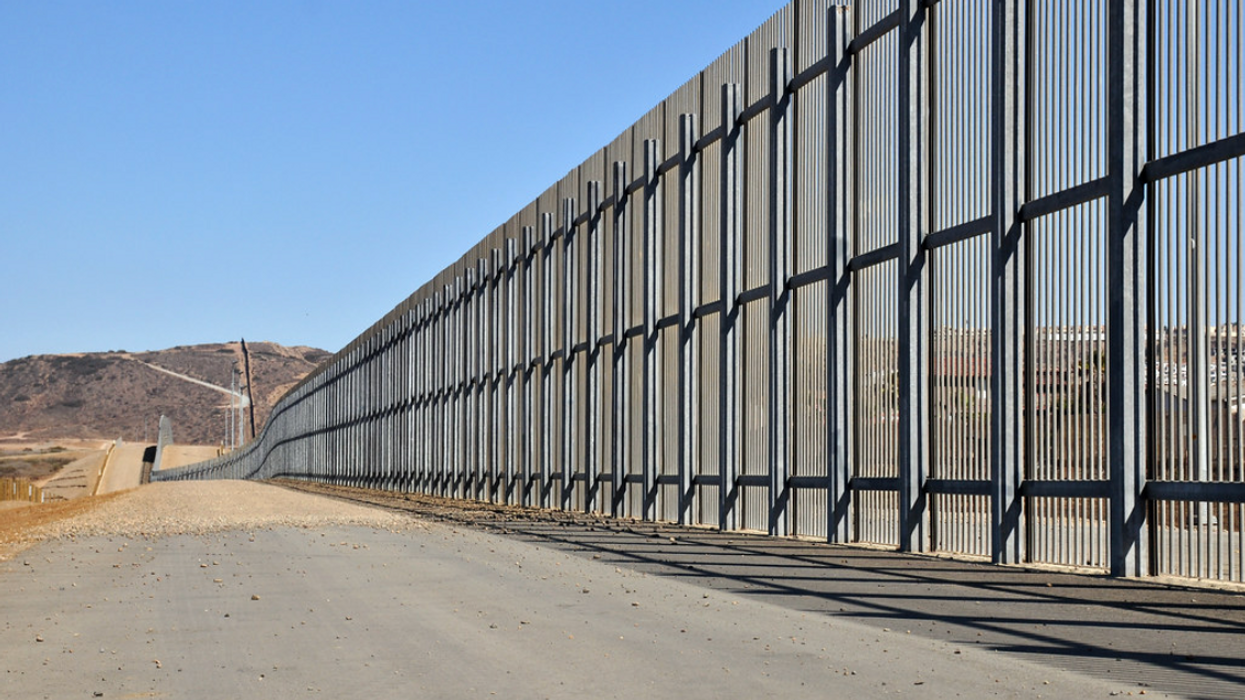Republicans Only Exist To 'Fight,' Not To Make Policy
The border bill circus is the latest demonstration of a bedrock reality of today's Republican Party: It does not exist to achieve political outcomes. Its chief function is fan service.
The overriding concern of GOP voters, according to polls and to elected Republicans, is immigration. In the ranty precincts of the right, they believe that the southern border is open; that criminals, terrorists and drug dealers are crossing en masse. Among less febrile Republicans, the argument is that while legal immigration is good for the nation, we are swamped by illegal border crossers and must get control of a border that is out of hand.
Whichever version of the immigration argument they favor, every Republican who truly cared about solving the "crisis at the border" would presumably favor a bill that would have tackled — or at least ameliorated — the problem right now. In October, a group of senators including Shelley Moore Capito and Todd Young sent a letter to the president warning that 169 people on the terrorism watch list had been apprehended in the preceding 10 months. In early January, a 60-member delegation of House Republicans traveled to Eagle Pass, Texas. They were enraged, they said, by the fentanyl coming across the border.
In reality, fentanyl is mostly smuggled by American citizens, not would-be asylum seekers. Ninety percent of seizures occur at legal border crossings and interior vehicle checkpoints. In recent years, just 0.02 percent of people arrested for crossing the border illegally had any fentanyl in their possession.
Speaker Mike Johnson thundered that "One thing is absolutely clear: America is at a breaking point with record levels of illegal immigration." Rep. Mark Green, who yesterday announced his retirement from Congress, claimed that the FBI director had testified that members of Hamas can "just walk right in." But as The New York Times clarifies, Christopher Wray said no such thing. Rather, he explained in response to a tendentious question, that he could not 100 percent guarantee that none of those who evaded the border patrol ("get-aways") were members of Hamas.
While the risk of terrorists crossing the southern border is not zero, the Cato Institute's Alex Nowrasteh has shown that the southern border is not a common vector for terrorists attempting to enter the United States.
But let's assume for the sake of argument that most Republicans are unfamiliar with Nowrasteh's research and fully believe the Mark Greens and Mike Johnsons of their party who claim that we are being overrun by terrorists and foreign drug smugglers, to say nothing of immigrants "poisoning the blood" of real Americans.
Would they not be outraged by their elected officials' decision to tank a border bill that would achieve many of their objectives? The base has not been shy about accusing Republican leaders of cowardice and betrayal over much less. Yet on this issue, supposedly the one they feel most passionate about, they are tamely accepting that GOP congressmen and senators passed up a unique opportunity to get much tougher enforcement just in order to give Trump a campaign issue?
Well, some might explain, the average Republican voter thinks that if Trump is reelected, they will get even better (i.e., harsher) measures to keep immigrants out. But that is false.
The only reason the Democrats are willing to agree to a lopsided border deal that gives Republicans 80 percent of what they demanded and get nothing in return (like a path to citizenship for Dreamers) is because Democrats are worried that the issue hurts them with voters — and since Republicans linked support for Ukraine, Israel and Taiwan to border security, Democrats would have to bend.
But that political calculation goes out the window if Trump is reelected. Democrats would not have any incentive to compromise.
So if GOP voters believe that illegals are flooding into the country to our sorrow and that we are in danger daily from infiltration by terrorists, how can they accept that Republicans would choose to continue this "unconscionable" status quo a day longer than necessary — much less the years it will likely take before another deal is possible? And if the Republican Party is a political entity, don't voters have a duty to understand political realities, including that this was a unique moment to achieve their cherished objective?
But if the party doesn't exist to solve political problems, if instead it exists only to "fight," then the voters' passivity makes sense. The GOP doesn't need to get control of the border, merely to impeach Alejandro Mayorkas. Lauren Boebert released a triumphant video after the (second) impeachment vote boasting that "Just now we impeached Secretary Mayorkas who has endangered our country by deliberately handing over control of our southern border to the cartel. Now that's delivering for the American people!"
No, that was a gross misuse of government power against an official that even the GOP's favorite legal advisers had said did nothing to merit impeachment. Besides, it was a pointless, empty gesture since the Democrats control the Senate and will certainly acquit him (as he deserves).
The show is everything. Results don't count, only the fight.
Reprinted with permission from Creators.


